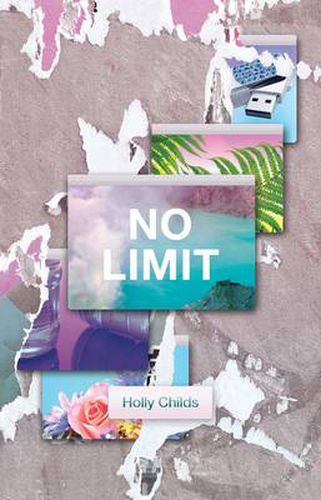Conversations with small publishers: Hologram
This week we interview three small presses about why they started their project, and what exciting projects they have in the works. Here, Johannes Jakob tells us about Hologram.
What were your reasons for establishing Hologram?
Hologram is a new project by Express Media, publishing two novellas by writers under 30. We figured novellas were kind of an underrated format – they have the same laser focus as a short story, sharp to one particular day or just a couple of characters, but then leave themselves more room to delve into that. Plus, there’s a lot to be said for something you can read in a single day.
But novellas are also great for writers! We know lots of people in that under-30 age group who are doing super cool work, getting stories and articles published in journals and magazines, and we really wanted to give them a leg up before they start in on a novel. Novellas are great for them to stretch themselves, to tackle something big without necessarily taking years and years before the rest of us can see it.
Sometimes you look at those lists of young writers, something like The New Yorker’s “20 under 40”, and they’re all framed as writers to watch. Well, there are a lot of young writers out there who aren’t just for the future, they’re writers for right now. They’re already technically superb but, more importantly, they have brilliant stories to share. We’re bringing the best of those to readers.
What has been most challenging, and most rewarding, since you’ve made this decision?
We knew right from the start of the project that we wanted to reward genuinely original, ambitious writing. It didn’t make much sense, to us, to start a new thing and play it safe, or to do the same things other publishers are already doing (really well). Of course, we were only ever going to publish good writing, but we went into it pretty open-minded about what good writing might look like, which maybe sometimes a bigger publisher can’t afford to do.
But that meant a lot of the time we were in uncharted territory. From initially choosing the manuscripts we wanted to publish through to editing them, finalising titles and covers, figuring out how best to promote the books – there were fewer markers out there to guide ourselves by. And of course, the structural peculiarities of novellas added another level to that.
So working with the authors to figure that stuff out was sometimes more challenging, but never in a particularly dispiriting way. Both the editor and the author want the best for the book, and already agree that there’s something special about it, so that actually makes any conflict pretty exciting, because it guarantees that once you’ve worked it out, the end product is the best it can be. Limp editing produces limp books.
Tell us about some upcoming releases for readers to look out for.
In April, there’s No Limit by Holly Childs. A volcanic eruption has cancelled Ash’s flight out of Auckland, trapping her in the city, getting pinged around between strangers. Everyone’s looking for everyone else but the volcano haze is making things feel increasingly apocalyptic. It’s getting harder and harder to connect to the internet. And if this really is the end of the world, the question for Ash is, who’s going to be there when it does end? It’s a fun and funny book, Benjamin Law says it’s “brash, inventive and unapologetically strange”. I think my elevator pitch for it is that it’s a bit like Tao Lin except with way more heart. It’s not as bleak; it’s the opposite of bleak!
The Loud Earth, by Elisabeth Murray, comes out in May. It’s a beautiful but deeply terrifying book. Acquitted of brutally murdering her parents, a recluse in a lakeside town remains guilty in the eyes of pretty much everyone there. And when she begins a romance with a girl that’s new to the town, that past begins to be unburied. It’s got quite a dark, gothic quality. It doesn’t take long for the gorgeous descriptions of the landscape to become haunting instead. It makes me think of Elizabeth Jolley’s The Well: two women alone in a vast landscape, a secret buried not that deep in the world around them. Romy Ash says about The Loud Earth: “Deeply unsettling, Murray’s prose is luminous.”



